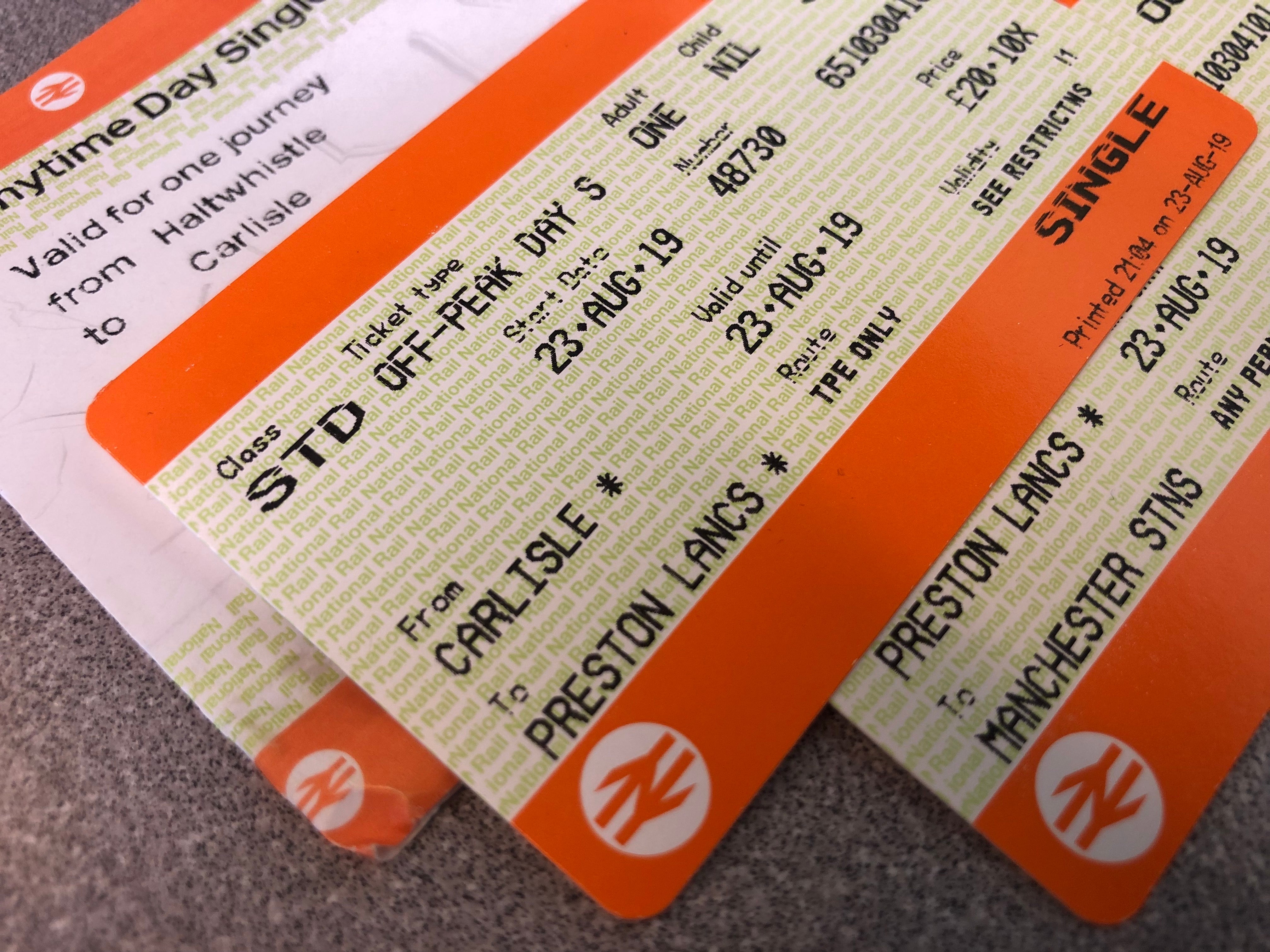Train fare dodgers face £100 penalty for travelling without a ticket
‘It’s never been more important to minimise the cost of fare evasion to the railways,’ says Department for Transport

Rail passengers who travel without a ticket face a five-fold increase in the penalty fare in the coming year – but will get a 50 per cent discount if they pay within three weeks.
With fare-dodging costing train operators and the taxpayer over £650,000 per day, the Department for Transport (DfT) says it “intends to adopt a surcharge option and raise the cost to £100 or £50 if paid within 21 days”.
The traveller must also pay the full single fare for the journey taken.
The plans are revealed in the DfT’s response to a consultation on how to reduce ticketless travel.
A spokesperson for the DfT told The Independent: “With over £240m lost every year due to fare evasion on our railways, it is vital we ensure deterrents are effective and fair.”
The document says: “When set against the profound impact coronavirus (Covid-19) has had on passenger numbers and industry revenues, it’s never been more important to minimise the cost of fare evasion to the railways.”
Fare revenue from rail travellers in Great Britain, which was around £10bn annually before the coronavirus pandemic, has collapsed and is believed to be around half of previous levels. Taxpayers are making up the difference.
At present, passengers who are found without a valid ticket are required to pay either a penalty fare of £20 or twice the full applicable single fare to the next station at which the train calls – whichever is the greater.
In theory a traveller found without a ticket on a nonstop GWR train between Taunton and Reading should pay £198 for the journey.
The DfT stresses a penalty is payable only if “there were facilities at the station to buy a ticket” and the traveller has “passed signs stating the consequences of not having a valid ticket”.
The announcement says: “The government believes that by reducing the value of a penalty fare if paid within a set number of days, we can introduce an effective, proportionate deterrent that also encourages the timely payment of penalty fares.
“DfT intends to adopt a surcharge option and raise the cost to £100 or £50 if paid within 21 days. This will align the value of the rail penalty fare to that of the Manchester Metrolink and the one proposed by Midland Metro.
“It will also broadly align the value of the rail penalty fare with the one charged by TfL [Transport for London].”
“By increasing the value of the rail penalty fare above the current £80/£40 charged by TfL, we will ensure that the values remain aligned when TfL next increases its penalty fare.
“DfT remains convinced that penalty fares, with their protections for passengers who have received one in error, remain a good tool to combat fare evasion on the railways.”
Passengers who choose to appeal under the proposed new system will be able to ‘stop the clock’ on the 21-day spell while their appeal is being considered – so they will not need to choose between appealing or securing a lower penalty fare.
Subscribe to Independent Premium to bookmark this article
Want to bookmark your favourite articles and stories to read or reference later? Start your Independent Premium subscription today.

Join our commenting forum
Join thought-provoking conversations, follow other Independent readers and see their replies